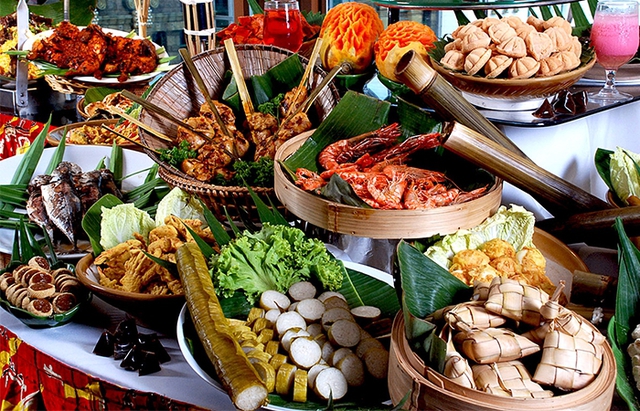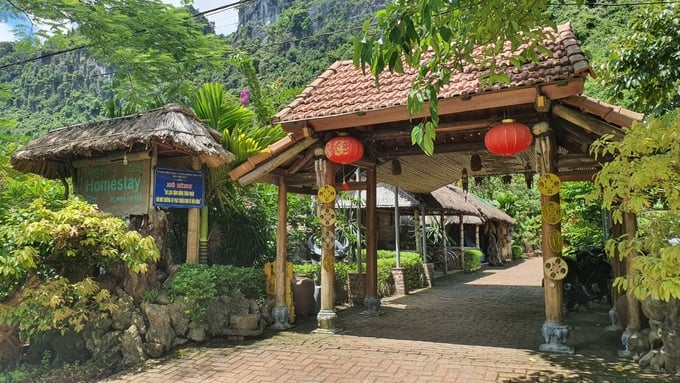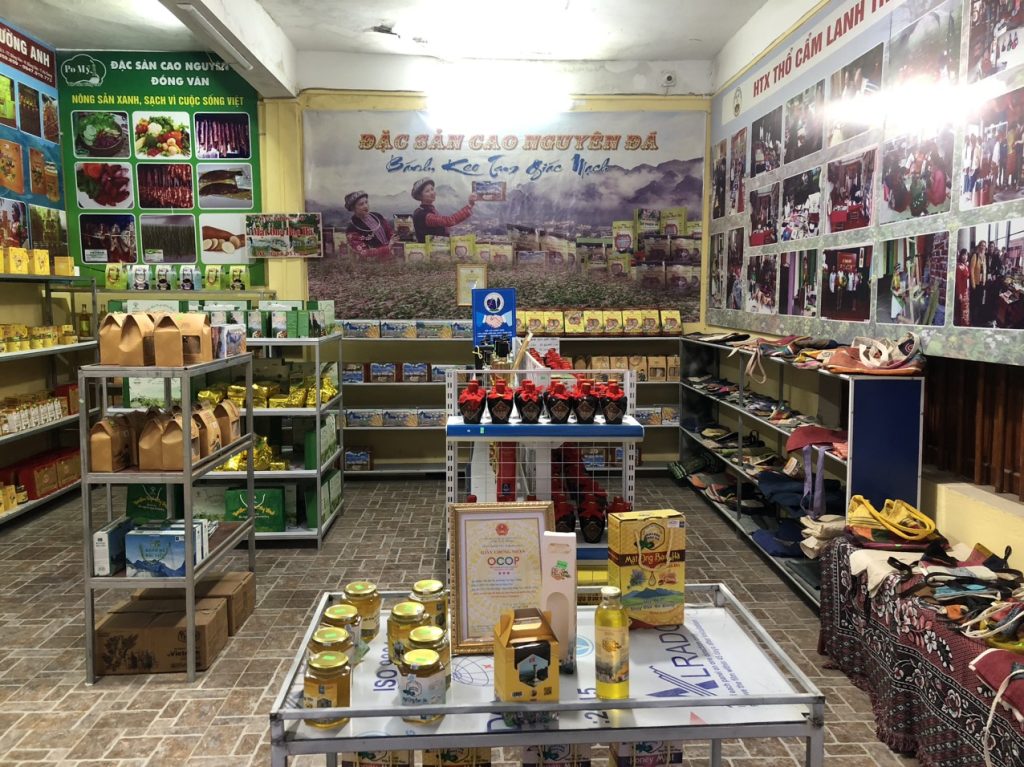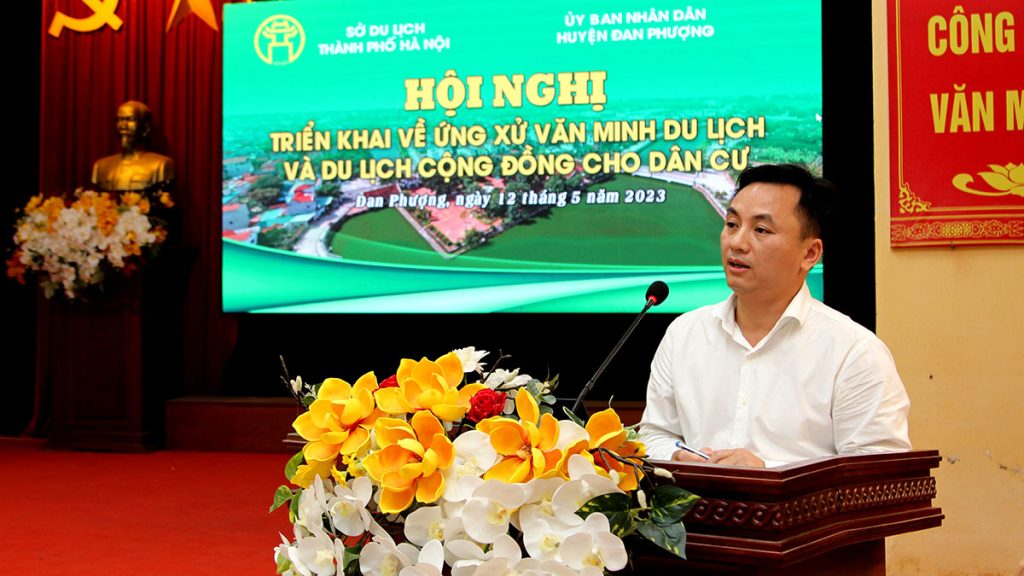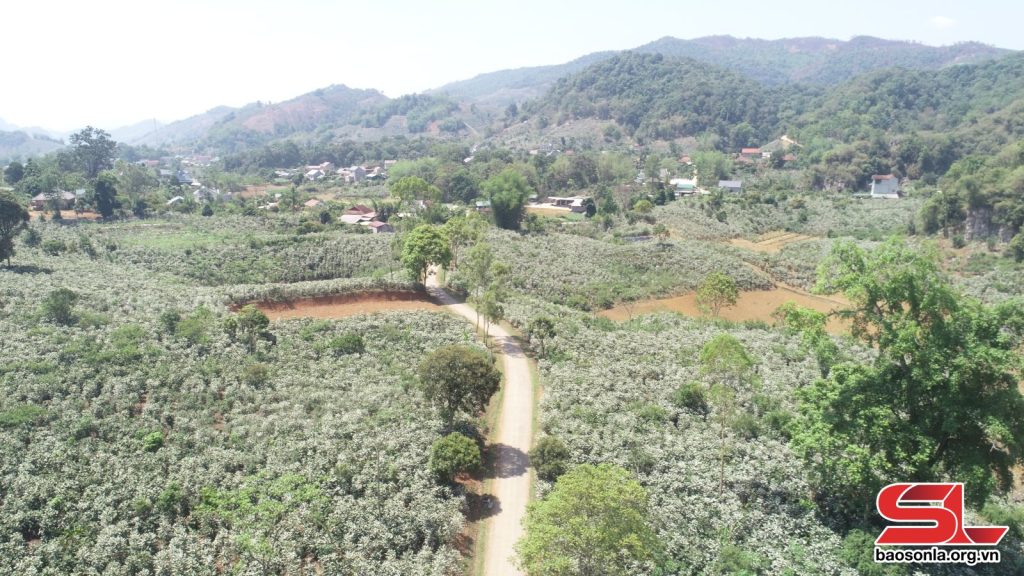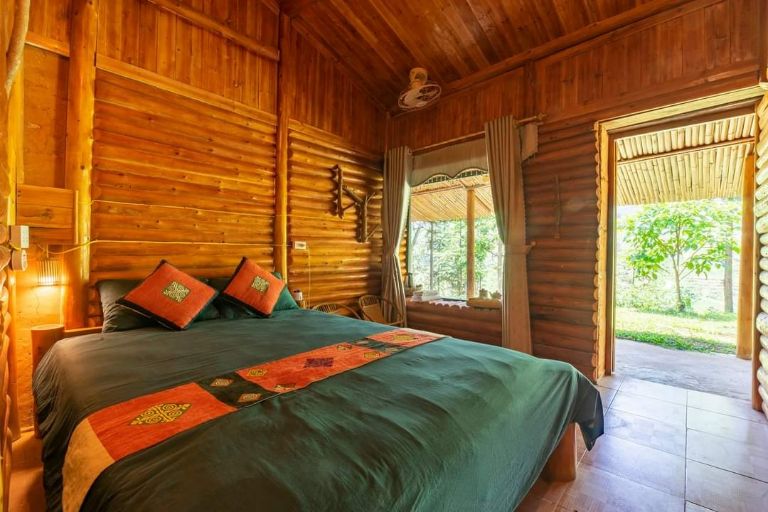(TITC) – Thai Nguyen Province (Northern Vietnam) encourages the development of community-based tourism associated with the production and consumption of agricultural and rural products and new rural construction.
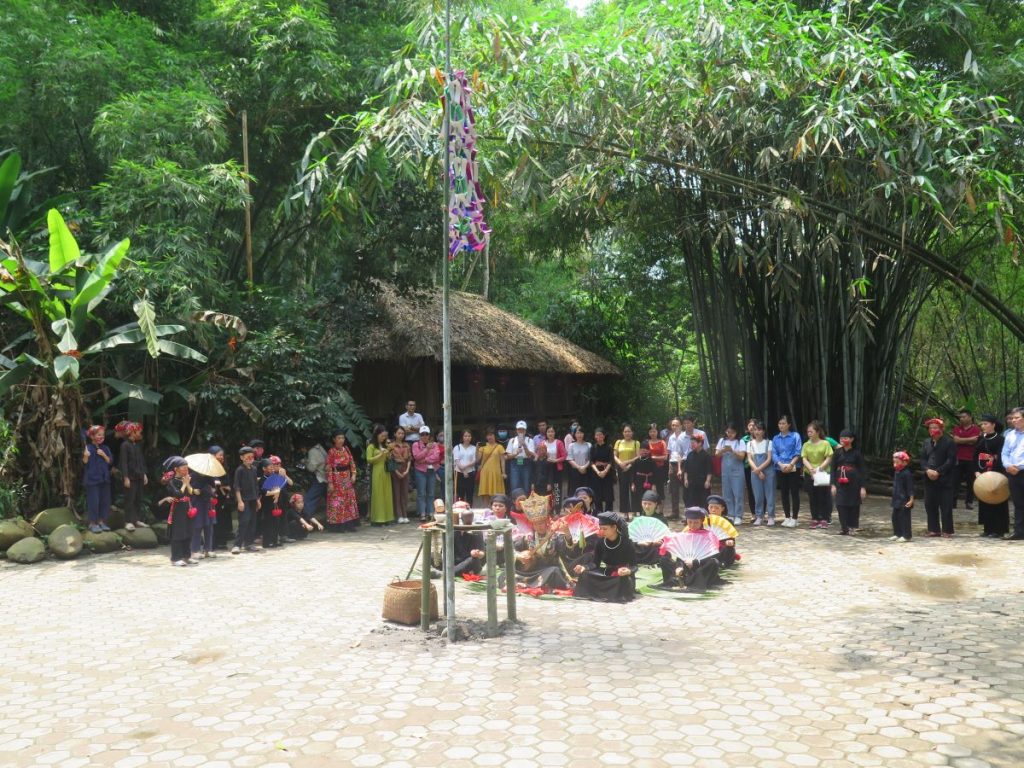
Thai Hai Reserve Area of Ecological Houses-on-stilts Village. Photo: TITC
Thai Hai Reserve Area of Ecological Houses-on-stilts Village (Thinh Duc Commune, Thai Nguyen City, Thai Nguyen Province) has been operating since 2011. The village has 30 traditional houses-on stilts. It is home of Tay, Nung, Kinh people. All the people in the village, from children to old people, wear their own traditional costumes. They still keep the customs, practices and traditional handicrafts such as making herbal medicine, cooking wine, processing tea, practicing Then performance in daily life.
Here, visitors will experience and immerse themselves in the village atmosphere imbued with ethnic culture. You can participate in local daily activities such as farming, breeding, baking, eating at the households or joining cultural and religious activities, traditional rituals of the Tay and Nung people and enjoying Then singing, folk games such as tug of war, swinging, walking on stilts…
Nong Thi Hao’s family, Tay ethnic group, has four generations living in Thai Hai village. Ms. Hao shared that, we live here and together preserve and promote our national culture. When there are visitors, we welcome guests, share with them about our culture, customs, perform art of Then singing, dandy, prepare traditional rustic dishes.
Thai Hai village has twice received ASEAN awards for community tourism and sustainable tourism. On 12th March 2023, in Saudi Arabia, Thai Hai Village (Vietnam) was honored at UNWTO’s Best Tourism Villages Award Ceremony.
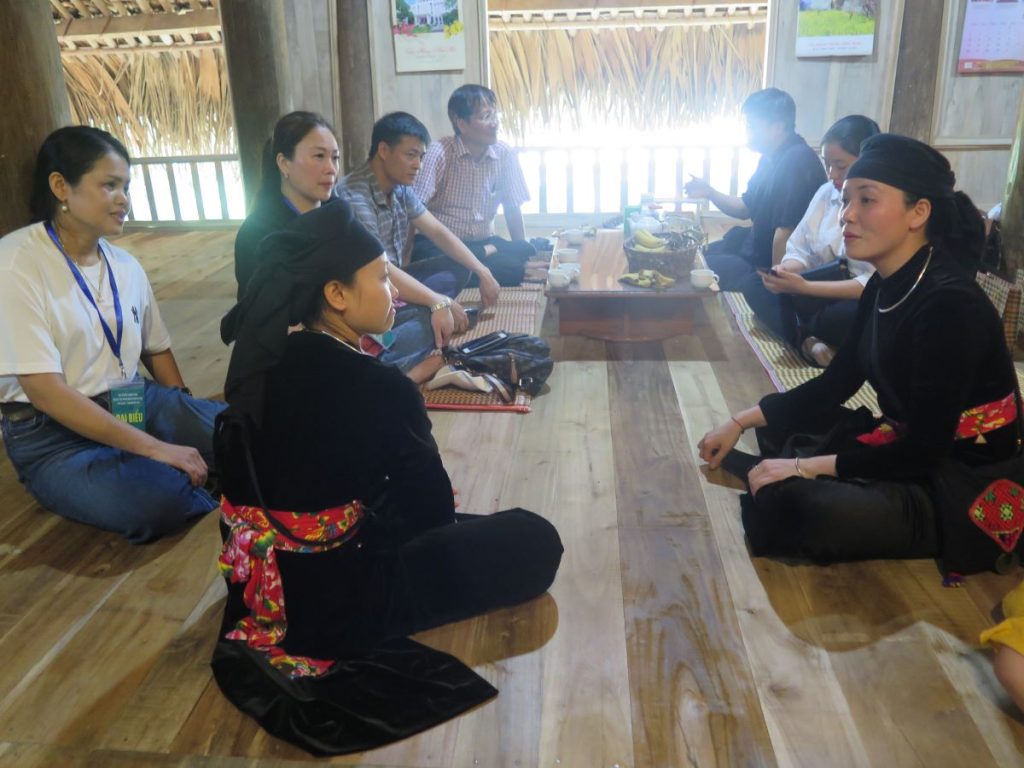
Thai Hai Reserve Area of Ecological Houses-on-stilts Village. Photo: TITC
Homestay Hoang Nong farm is located at the foot of Tam Dao mountain, in Doan Thang hamlet (Hoang Nong commune, Dai Tu district), about 40km from Thai Nguyen City to the west. The homestay has 2 houses on stilts in the style of the Dao ethnic group with an area of 300m2, a capacity of 18 – 20 people, surrounded by green tea hills produced in a safe direction, where visitors can experience tea collection and tea processing.
Mr. Nguyen Van Tung, the owner of the homestay, said that in the process of taking guests to visit many places across the country, I saw that my hometown has a lot of potential for developing eco-tourism associated with tea trees. Therefore, I was determined to start a homestay model at the family’s tea hill with the aim of promoting the local cultural identity.
Mr. Pham Duy Hung, Secretary of Dai Tu District, said that the district was chosen to become a green urban area, a leading agricultural tourism economic region of Thai Nguyen. The exploitation of the great tourism potentials of the characteristics of Nui Coc Lake region, the eastern slopes of Tam Dao combined with the tea hills, the orchards at the foot of Truc Lam Monastery will create an impressive experience of an ecological region.
Local governments of Thai Nguyen are focusing on investing and encouraging the development of community-based tourism based on exploiting available natural advantages, historical relics, and culture of ethnic communities, especially associated with production and consumption of agricultural and rural products and construction of new rural areas.
Sustainable tourism activities are gradually being formed, attracting tourists to visit and experience. Typically, the models of community tourism and agriculture associated with tea culture in Tan Cuong commune (Thai Nguyen city), La Bang commune, Hoang Nong commune (Dai Tu district), Tuc Tranh commune (Phu Luong district); model of agricultural tourism with orchards (vineyards, strawberries in Khoi Ky commune, Dai Tu district), agricultural tourism model associated with ecological landscape of Ghenh Che lake (Song Cong city)…
Community-based tourism operators, cooperatives, and villages have built agricultural product processing areas, display areas to introduce and sell featured products, souvenirs, etc. At the same time, repairing village roads and alleys, renovating tea fields to serve large groups of guests to visit and experience.
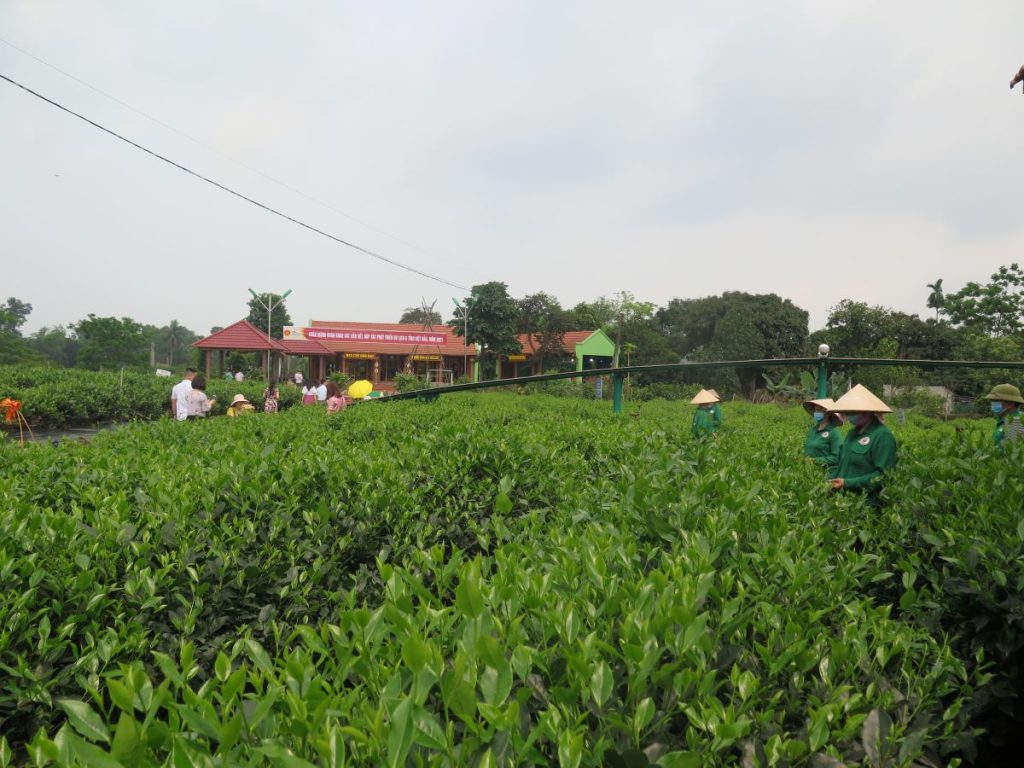
Tan Cuong Tea. Photo: TITC
Tourism Information Technology Center

